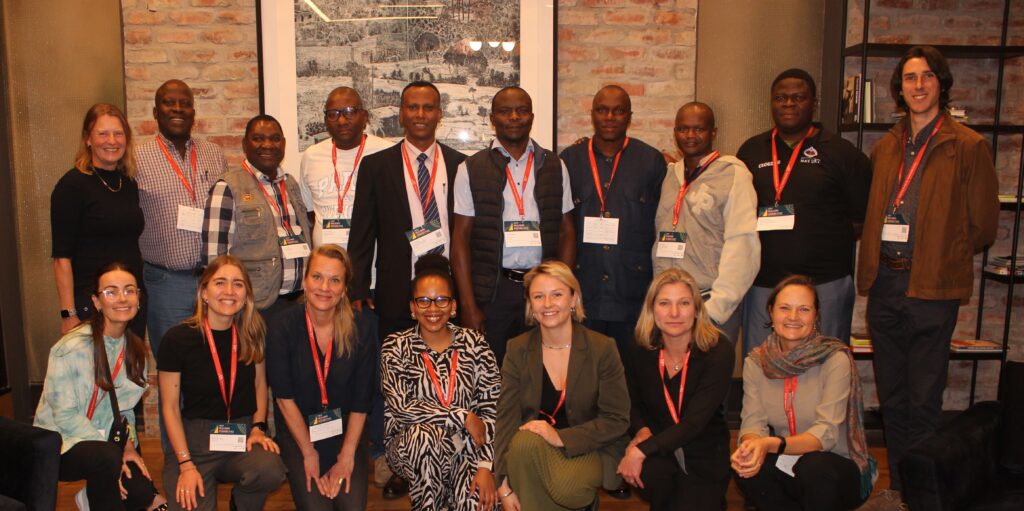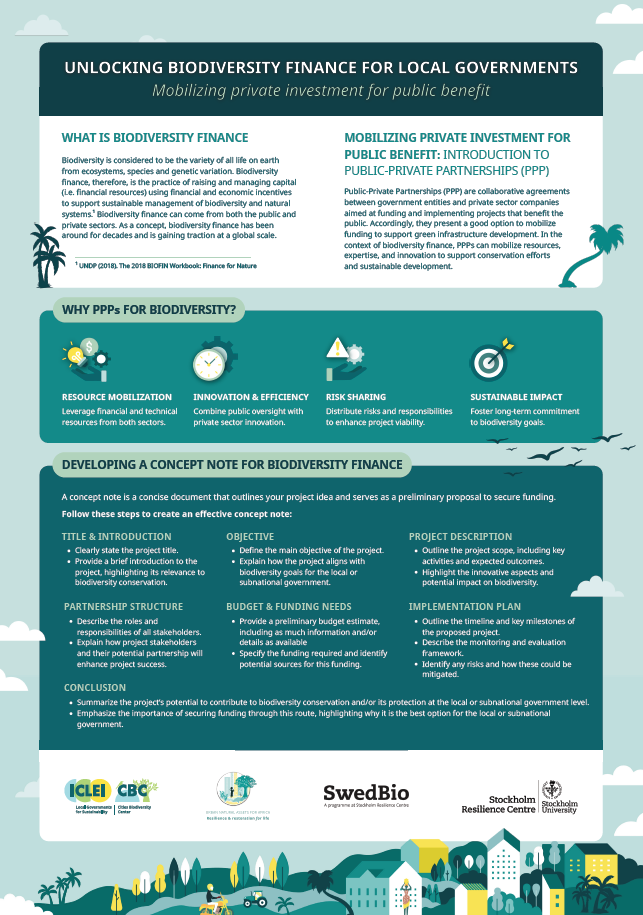13 June 2025
UNA immersive learning at RISE Africa 2025 Urban Action Festival

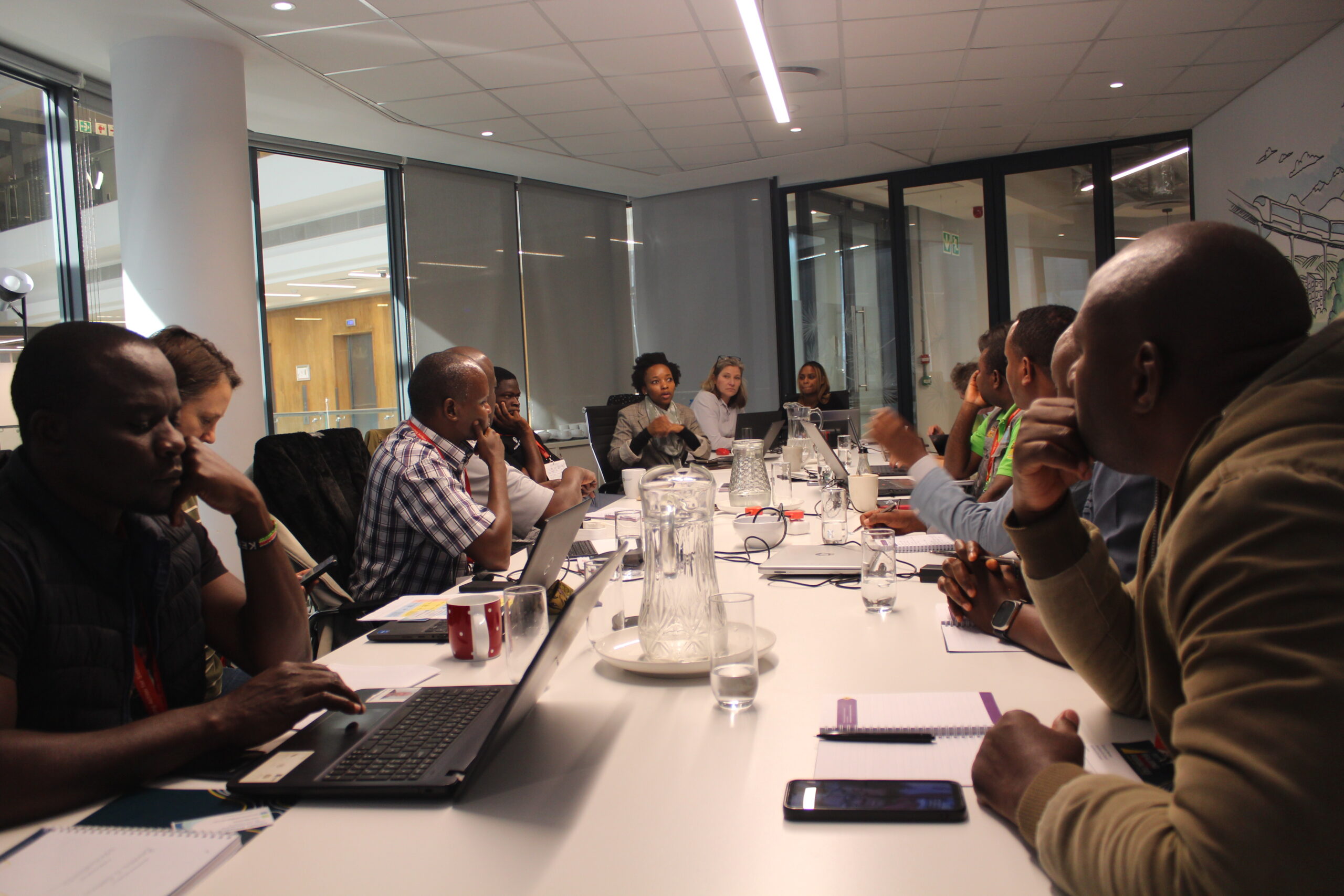

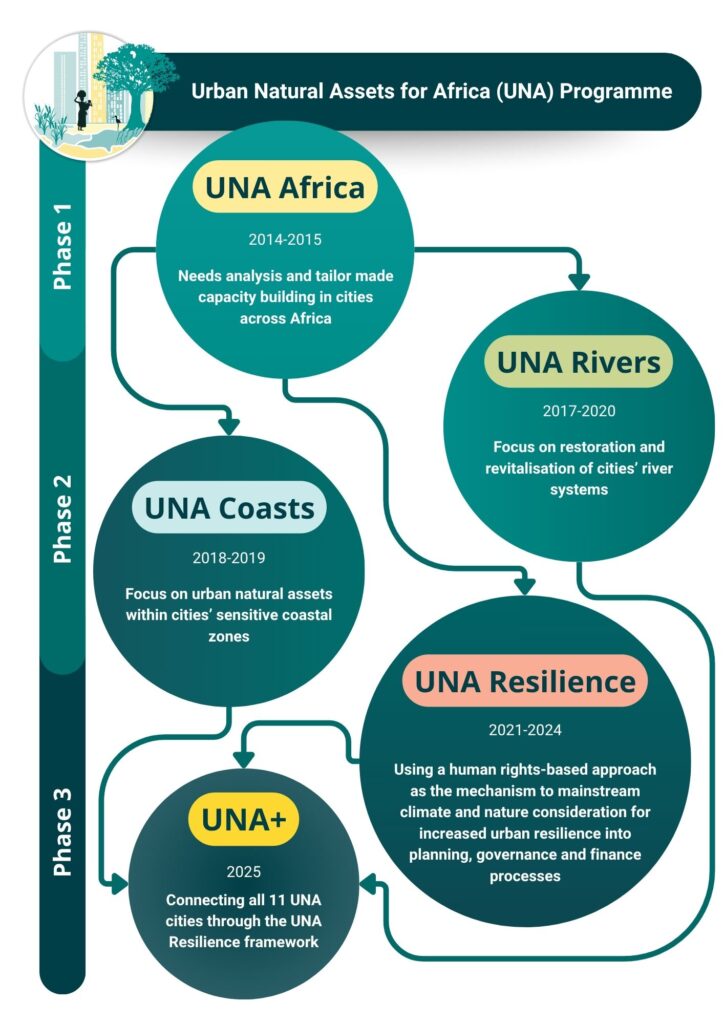
Over the last decade, 11 African cities have been involved in different phases of the Urban Natural Assets (UNA) programme. The focus in 2025 has been on bringing these cities together, leveraging and building on the work done over the last 10 years to advance transformative trajectories, scale learnings, and build urban resilience. From 26–30 May 2025, cities participating in UNA took part in a curated learning experience at the RISE Africa 2025 Urban Action Festival. The week-long event combined immersive learning workshops, peer exchanges, and working sessions, all grounded in the challenges and opportunities of implementing nature-based solutions (NbS) in African urban contexts.
Throughout the festival, participants engaged in UNA-led sessions, interactive workshops, site visits, networking opportunities, as well as the broader RISE Africa programme to learn, share insights, and nurture local government connections across the continent.
Activities during this in-person gathering were designed to: deepen participants’ knowledge of NbS and urban resilience; foster collaboration across the UNA network; and equip city representatives with practical tools and partnerships to advance nature-based resilience efforts in their home cities.
The following cities, representing 9 of the 11 UNA cities from across the African continent were present: Bo City, Cape Coast, Addis Ababa, Cape Town, Quelimane, Dar Es Salaam, Kisumu, Lilongwe and Entebbe.
By blending reflection, technical learning, and real-world exposure, the experience strengthened both individual and collective capacity to integrate nature-based approaches into urban planning and policy.
Session highlights
Welcome to UNA: Arrival into UNA programme
The UNA Welcome Session brought together participants from all UNA cities for the first time, joined by Ellika Hermansson from SwedBio and Ingrid Coetzee from ICLEI Africa. The session opened with an icebreaker focused on shared perspectives of urban elements, followed by a brief overview of the week’s programme. Ingrid Coetzee then guided city representatives—particularly those from earlier phases of the UNA programme—through a reflective conversation revisiting the origins and evolution of the initiative, which was launched over a decade ago.
Key insights from the discussion highlighted the sustained progress and lasting impact of early UNA efforts. Notable examples included the completion of Ras Mekonnen Park in Addis Ababa; the Village Action Plan in Lilongwe, which continues to benefit the local community; and the mapping of urban natural assets in Entebbe, where the digitised outputs now inform urban planning and help protect natural ecosystems. Kisumu shared reflections on its flood-proofing efforts, enabled by waste cleanup activities initiated through UNA’s urban tinkering approach. The city also noted improvements in participatory budgeting processes. Quelimane presented impactful lessons from its organic market waste composting initiative, which now generates income, as well as efforts to green sidewalks and promote non-motorised transport. Dar es Salaam contributed via a video message, while Cape Coast reflected on its involvement in the latest UNA phase: Resilience and Restoration for Life.
Ellika Hermansson closed the session by sharing her key takeaways, emphasizing the role of creative methodologies, experimentation, and the importance of embedding a needs-based approach from the outset. In response to the collective reflections, she remarked that she was “blown away by the impressive results – UNA cities shining bright like a diamond!”
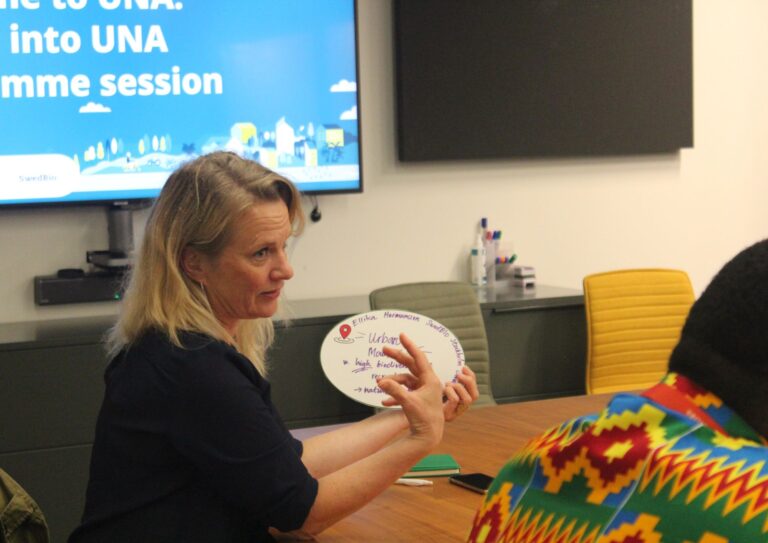
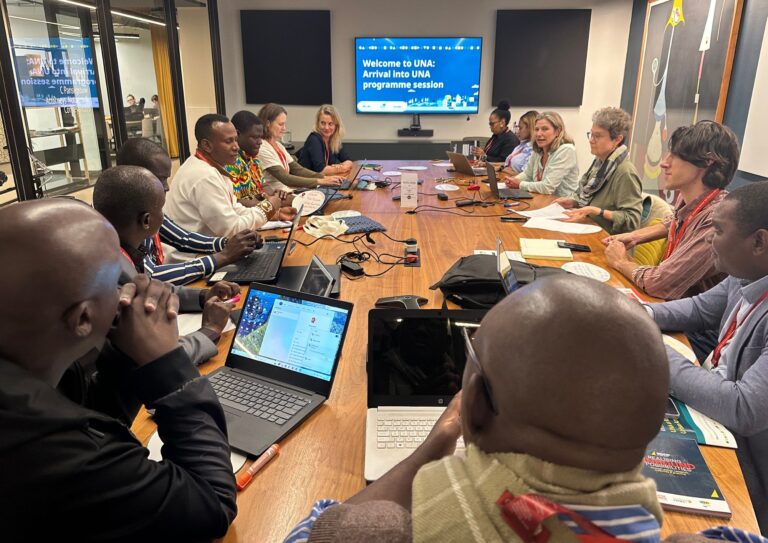
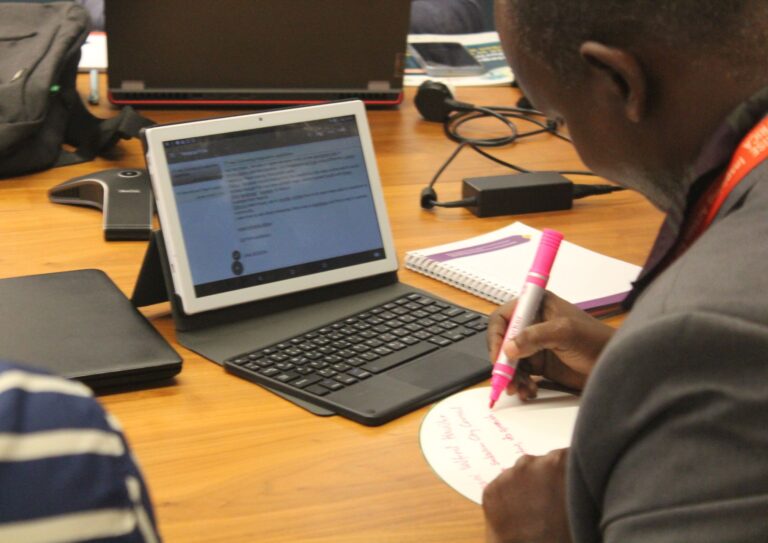
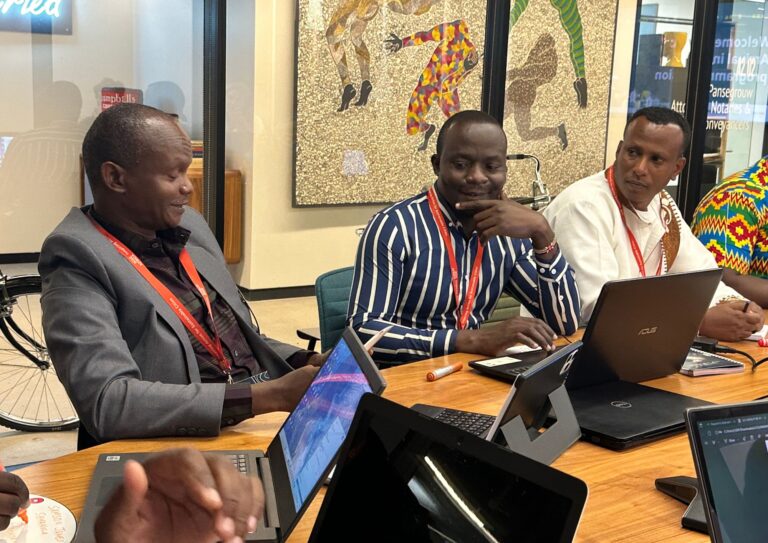

Rights, restoration and resilience: Lessons from the Urban Natural Assets programme
As cities around the world strive for more sustainable futures, the call for just and equitable approaches to urban development has never been more urgent. This session highlighted the importance of Human Rights-Based Approaches (HRBA) in addressing development challenges, with a particular focus on Nature-based Solutions (NbS). Participants were taken on a journey through Cape Coast, highlighting ongoing efforts to protect both people and nature, drawing on insights and tools developed through the Urban Natural Assets (UNA) project. Central to the discussion was the use of vernacularisation as an entry point, using local languages to understand the intricate relationship between human rights and development. Through this session, participants had the opportunity to reflect on current HRBA practices and understand the power of language in shaping how we view and interact with the world around us. The session enabled a better understanding of the value for Human Rights Based Approaches to urban development, serving both as a reflection and a call to action, inviting all participants to consider how they can contribute to creating cities that are not only sustainable, but also equitable and rooted in the rights and needs of their communities.
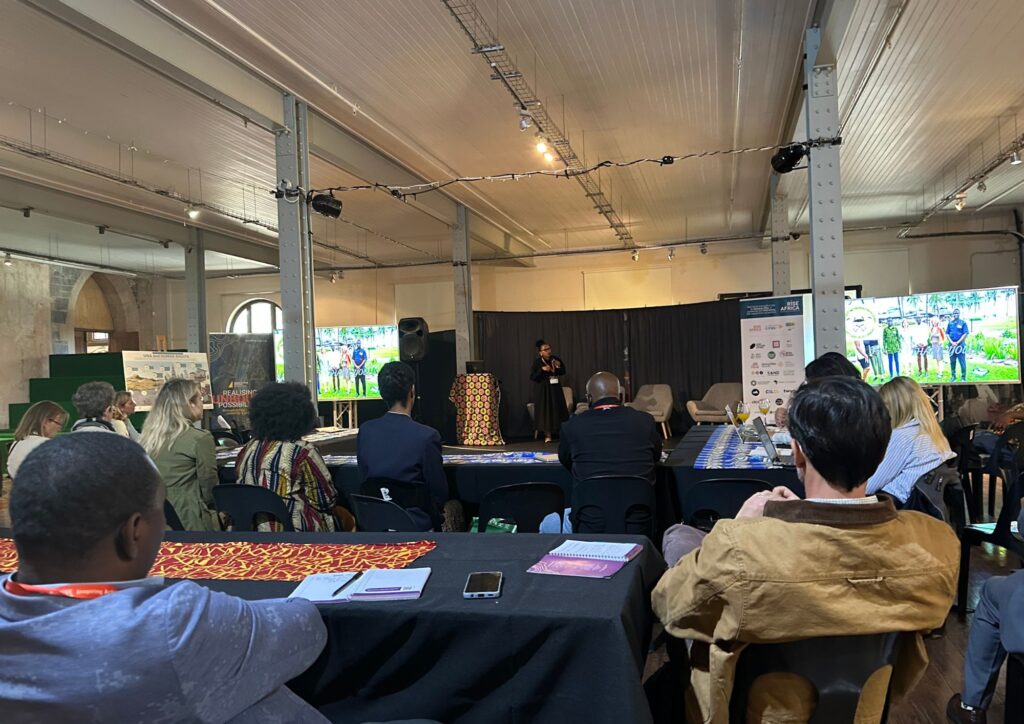
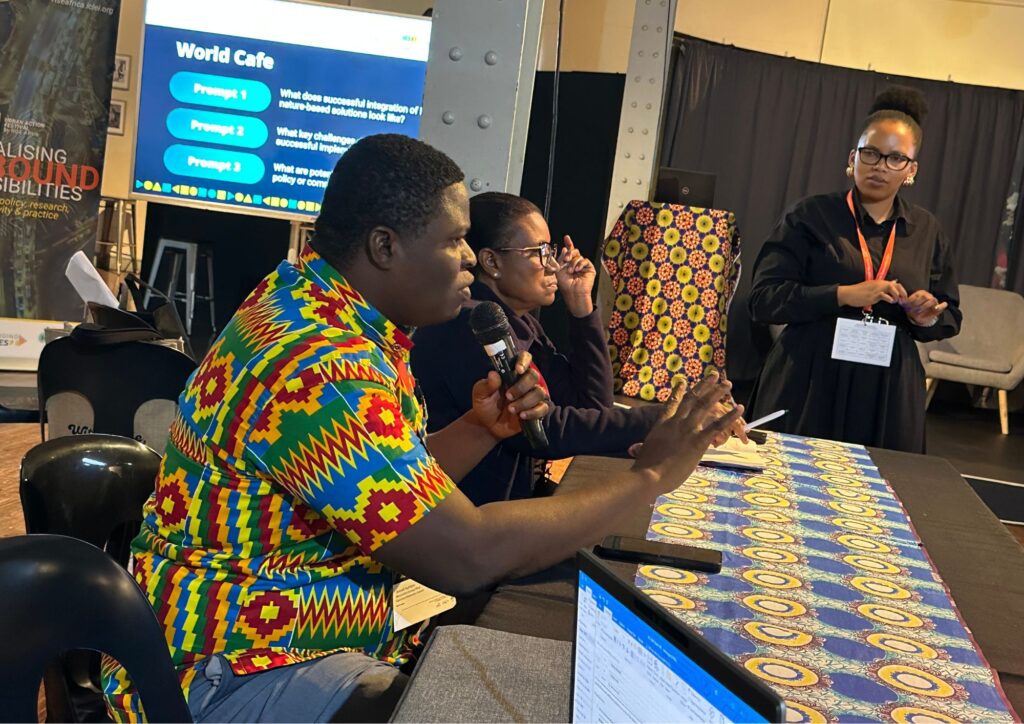
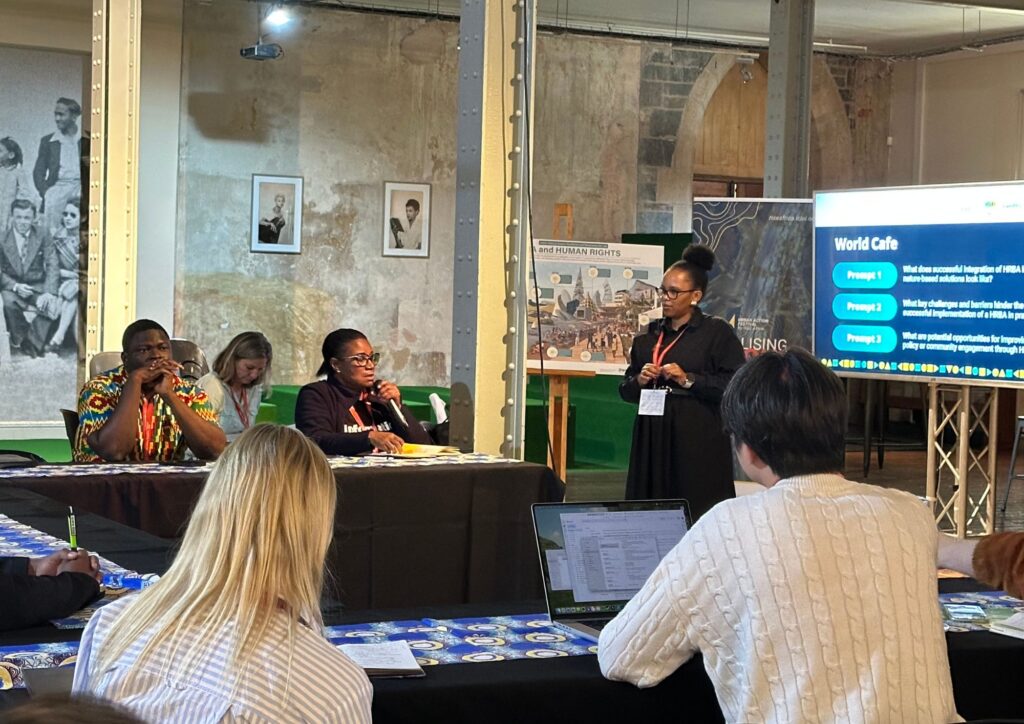

Leveraging Nature in an Urban Context: Lessons from Implementing Nature-Based Solutions and Collaborative Urban Design Processes
This session explored how nature-based solutions (NbS) can be meaningfully co-designed and maintained with communities, particularly in informal urban areas. Drawing on experiences from Kounkuey Design Initiative’s (KDI) projects in East Africa as well as examples from the Urban Natural Assets (UNA) programme, it highlighted practical strategies for embedding participation at every stage – from planning and design to implementation and long-term stewardship. Speakers emphasised the need to localise language, respect lived experience, and build trust over time. Case studies showed how inclusive approaches, such as using tools like Minecraft, methodologies like photovoice and walking workshops, or working intentionally with women and children, can enhance the relevance and sustainability of NbS interventions. The session challenged technical silos and reframed NbS as rooted in ancestral knowledge, offering not just environmental benefits but opportunities to reimagine social structures.
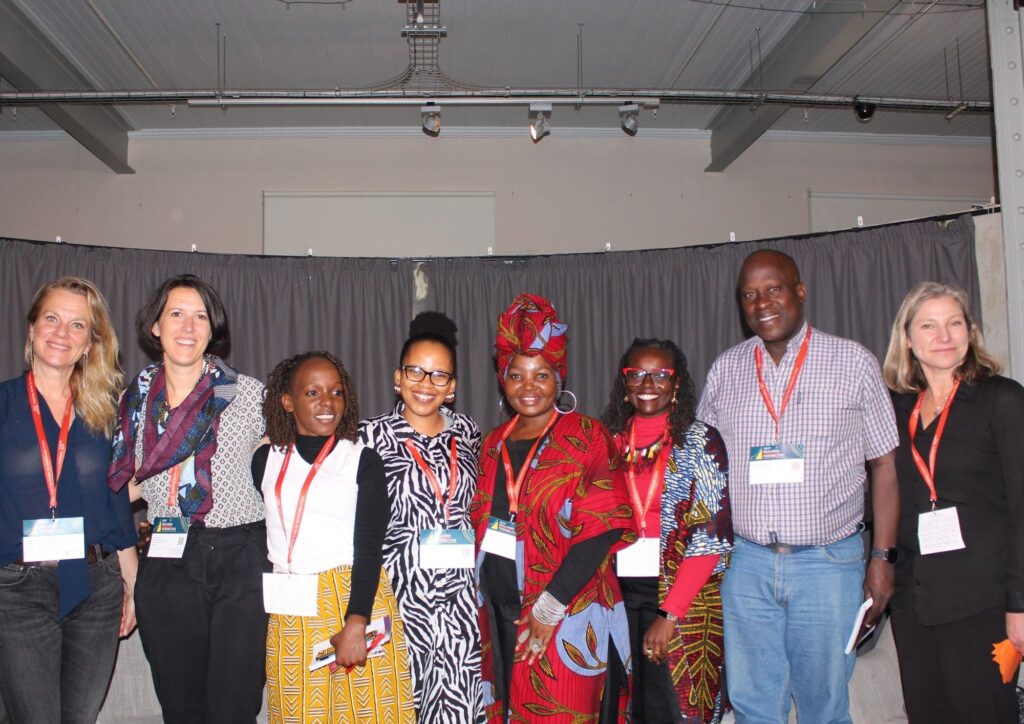
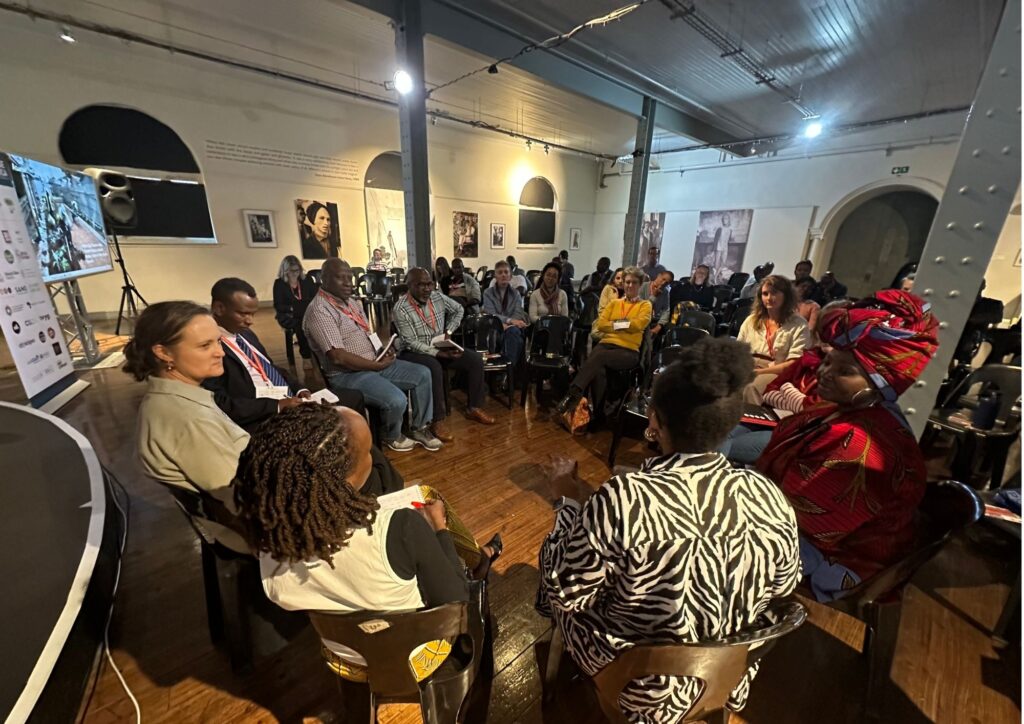
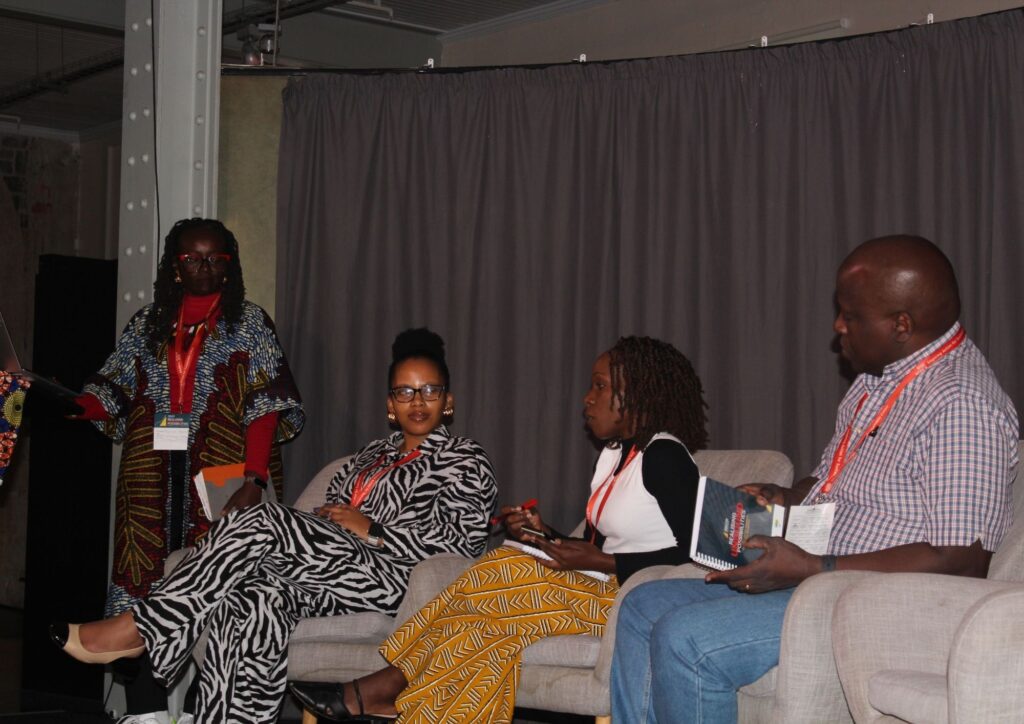

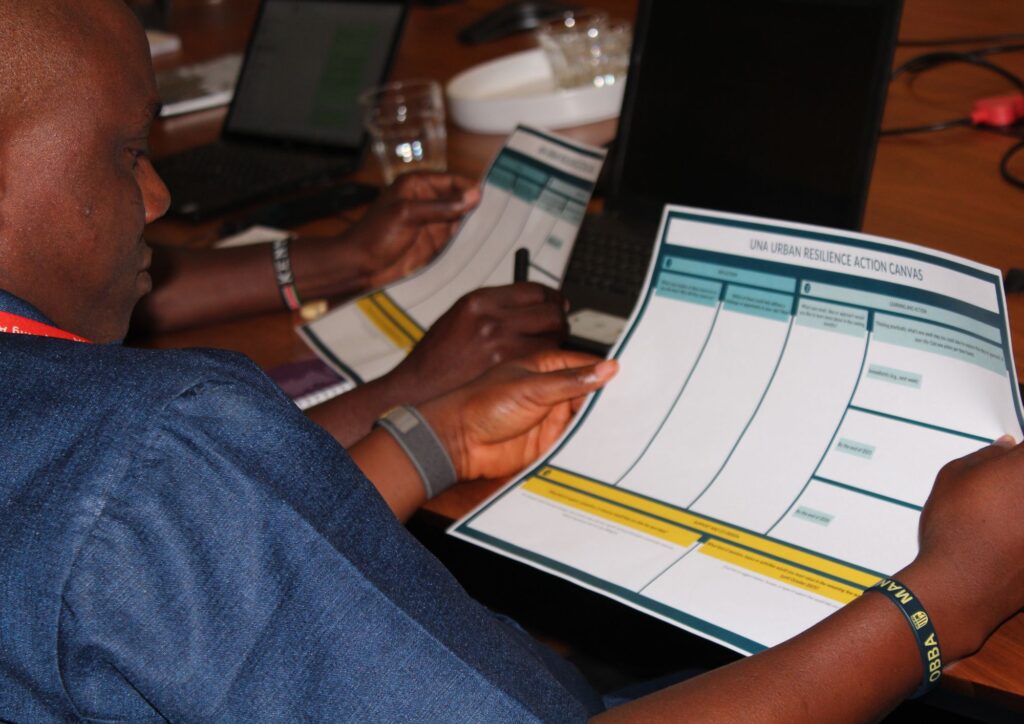
Urban Resilience in Practice: Peer Exchange
The first immersive session of the UNA at RISE programme brought together city representatives for a vibrant exchange of nature-based solutions in action. Through short, compelling case study snapshots, cities shared diverse approaches to common challenges – ranging from solar-powered street lighting in Entebbe to wetland restoration and mangrove planting in Quelimane. Participants were energised by each other’s innovations and expressed strong interest in continuing the dialogue throughout the week – and beyond. They noted how similar urban problems can lead to varied solutions or even similar solutions with different outcomes, depending on the context. The City of Cape Town provided valuable background on the Green Point Urban Biodiversity Park ahead of the site visit. The interactive session that followed allowed cities to reflect on shared learnings and begin shaping ideas for local action or future peer exchange. The session highlighted the richness of city experiences and the value of peer-to-peer learning in advancing urban resilience. It also laid the foundation for co-developing future virtual engagements and city-led initiatives for the remainder of the project.
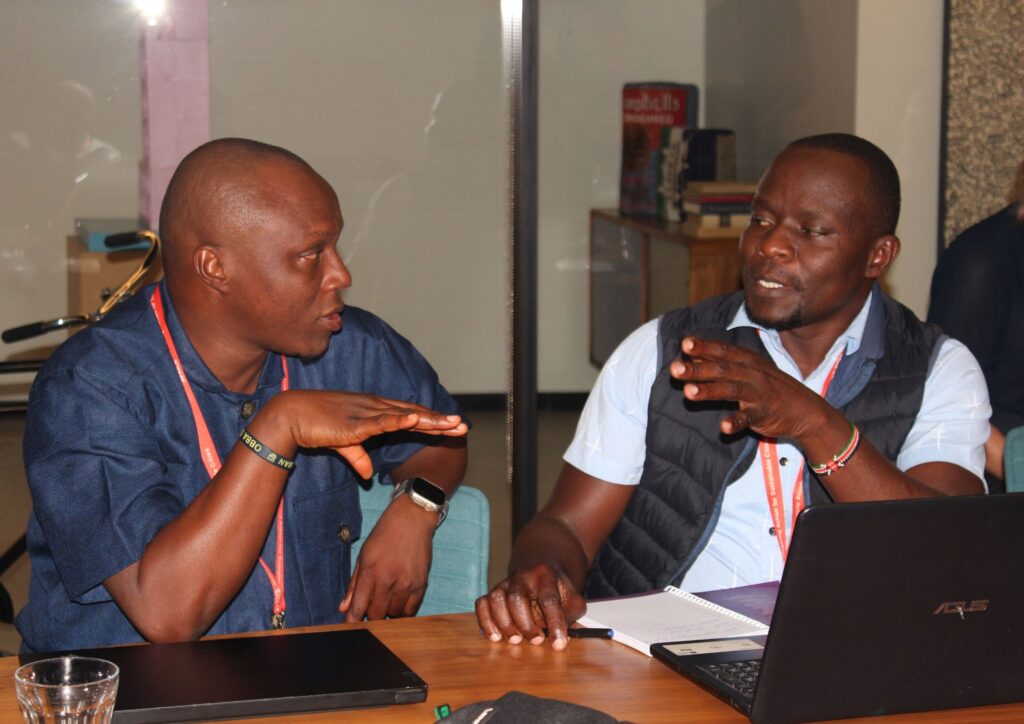
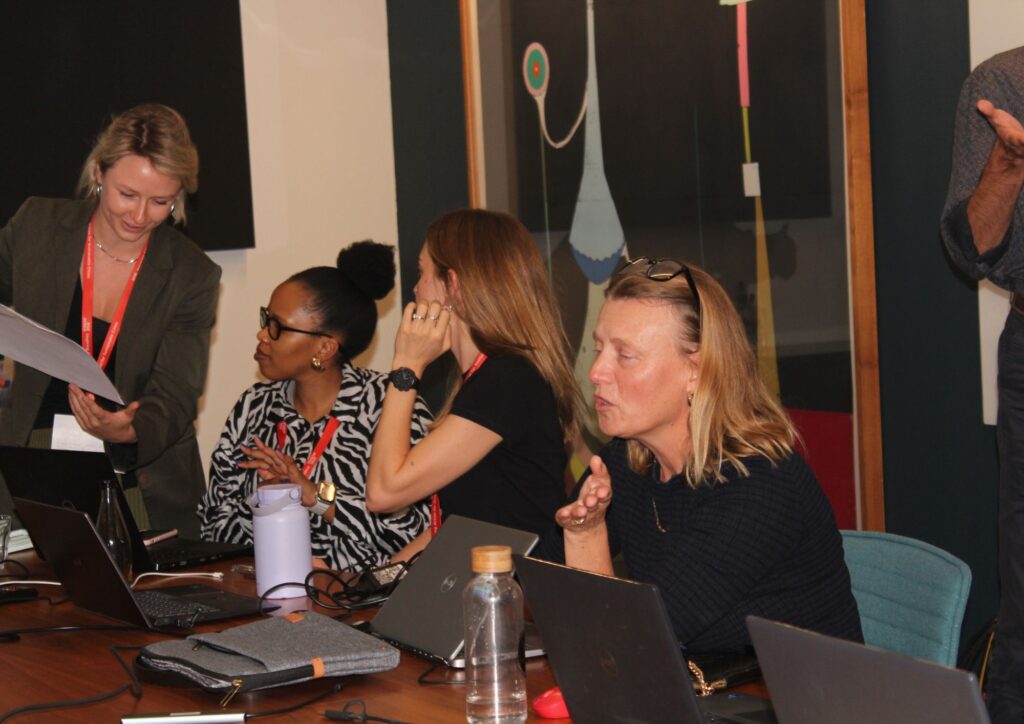
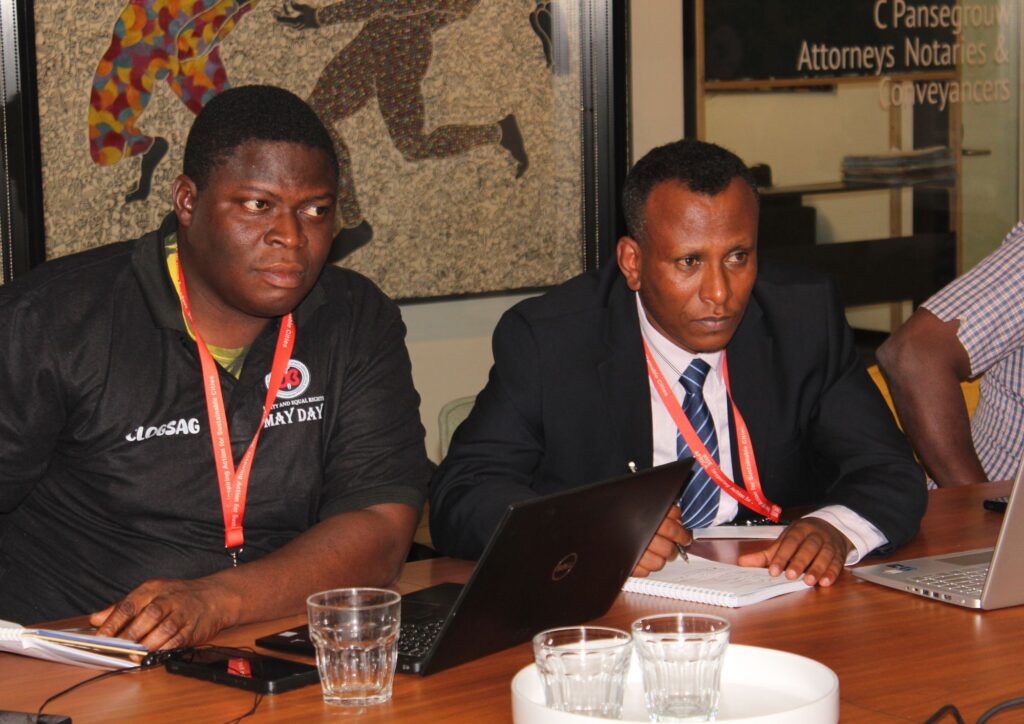
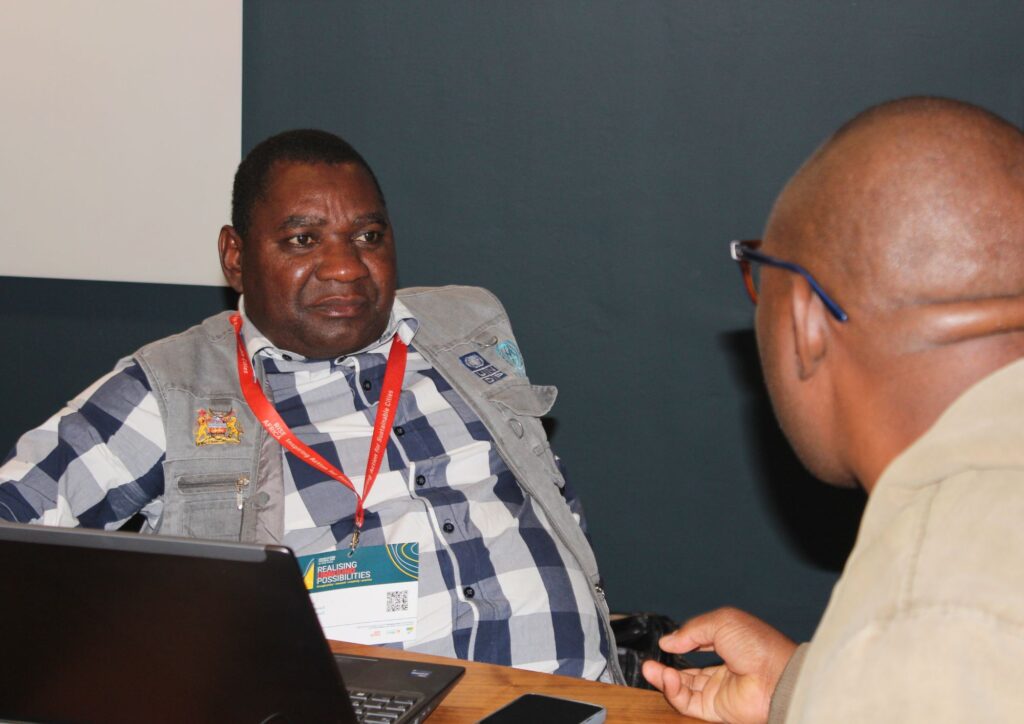
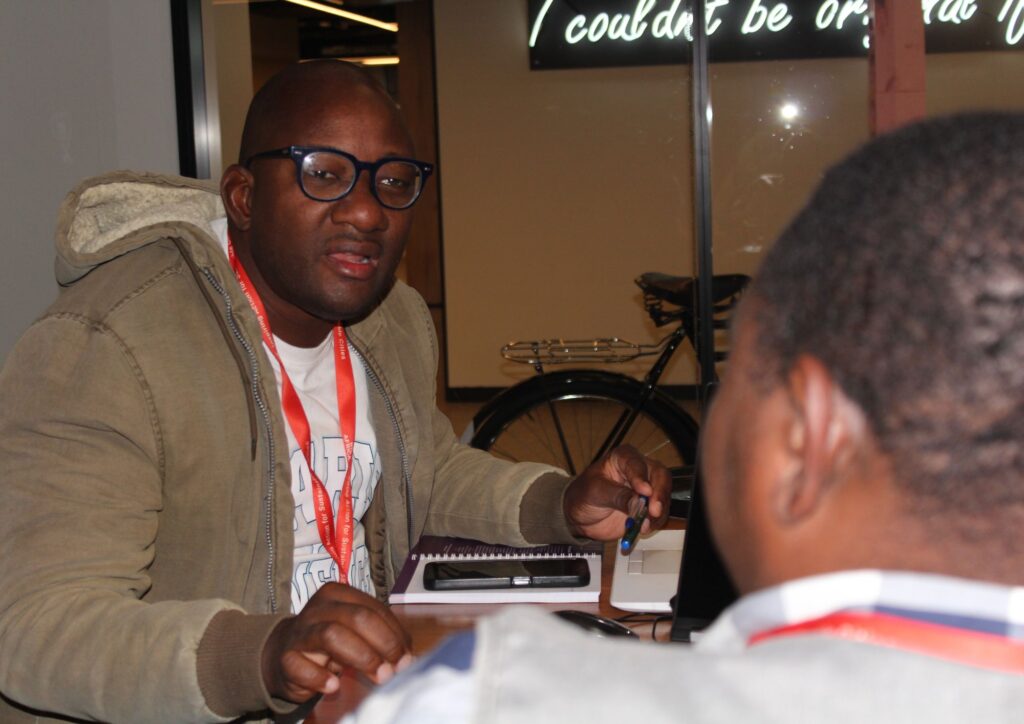
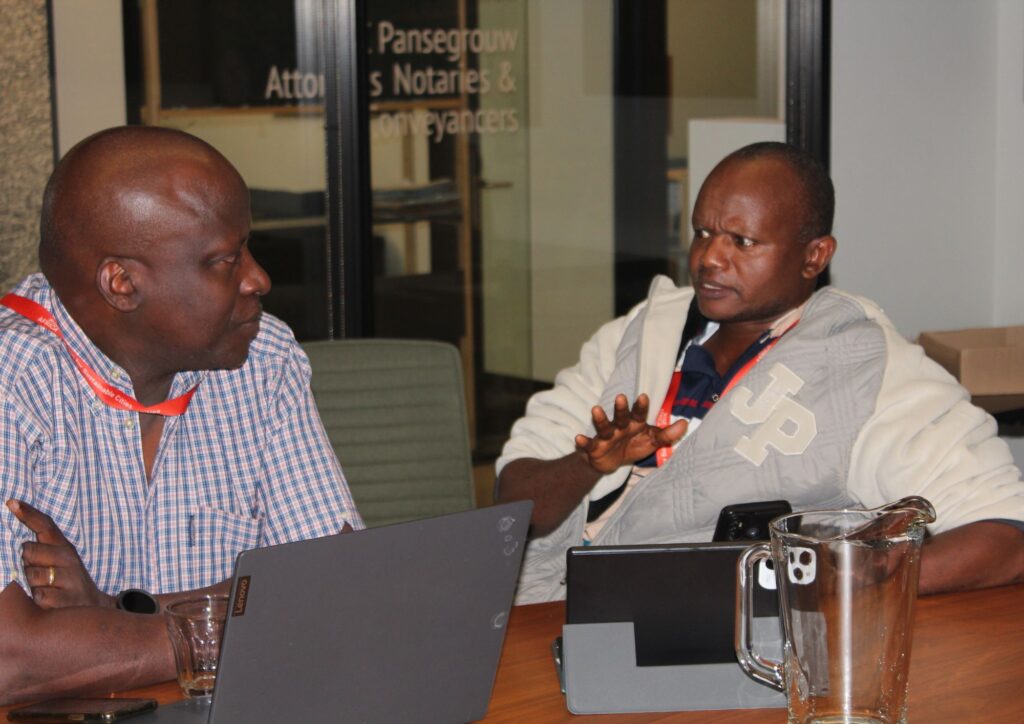

Unlocking Biodiversity Finance for Local Governments
The second immersive session focused on finance and featured a presentation by Mookho Mathaba from the Development Bank of South Africa (DBSA). Speaking from a funder’s perspective, Mookho shared insights into available funding opportunities and highlighted key elements that contribute to a successful concept note and funding proposal. This was followed by a brief presentation on biodiversity finance and the foundational components of Public-Private Partnerships (PPPs). Building on these insights, city representatives were paired up and tasked with developing initial concept notes, refining their ideas in alignment with the presentations. Participants then had the opportunity to pitch their concepts during the “Eagle’s Nest” session—a panel review format featuring Mookho Mathaba, Ellika Hermansson, and Ingrid Coetzee as judges. Cape Coast presented a waste management concept, receiving constructive feedback on the importance of assessing the feasibility of waste sorting and cleaning costs for recycling. Addis Ababa proposed a biodiversity education centre, prompting responses about the structural complexity and funding challenges of such a project. The remaining cities each had approximately two minutes to present their ideas. Ultimately, Dar es Salaam’s pitch—a pilot project to restore urban biodiversity—was recognized as the session’s standout concept.
Reflecting on the experience later in the week, Samson Semakula from Entebbe remarked that the session was “very useful, especially as the developed concept note resulted in a tangible takeaway.”
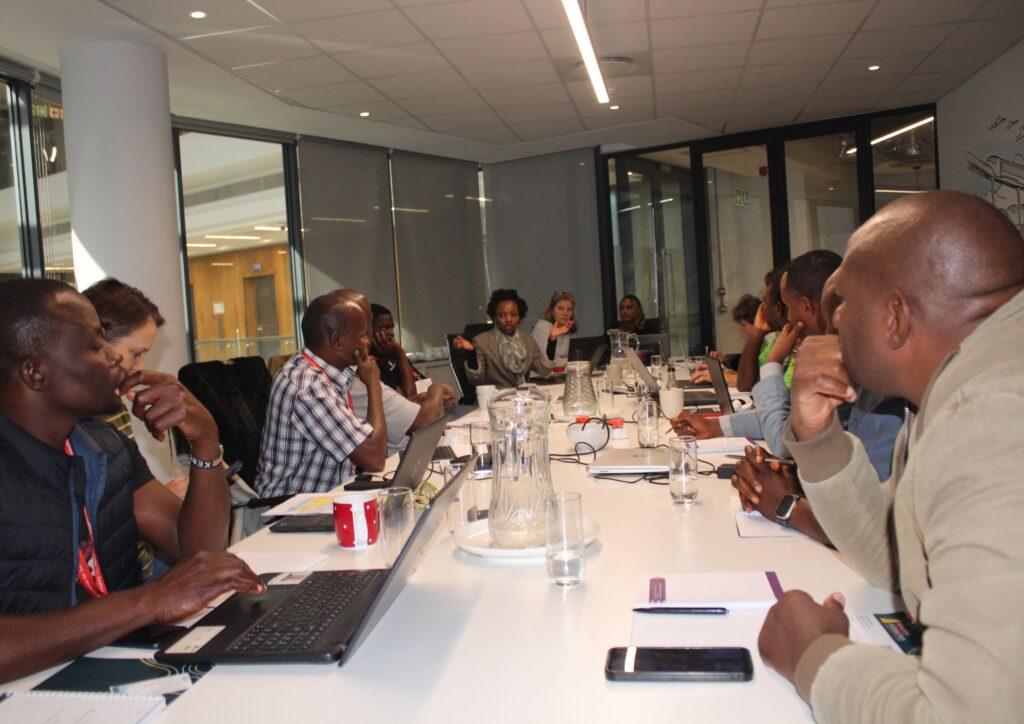
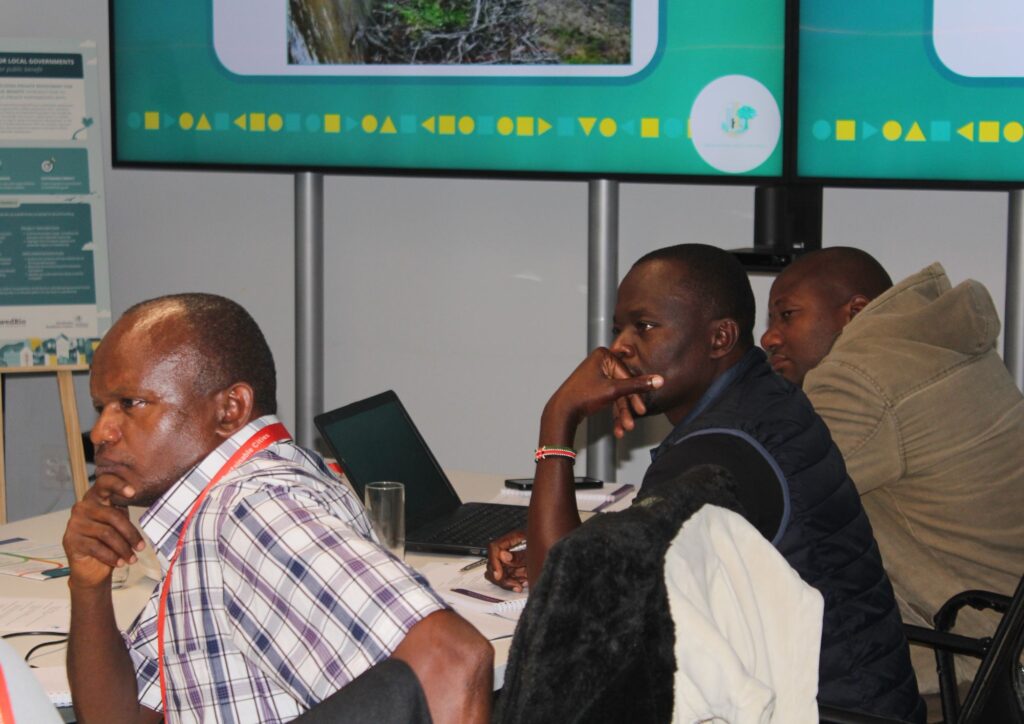
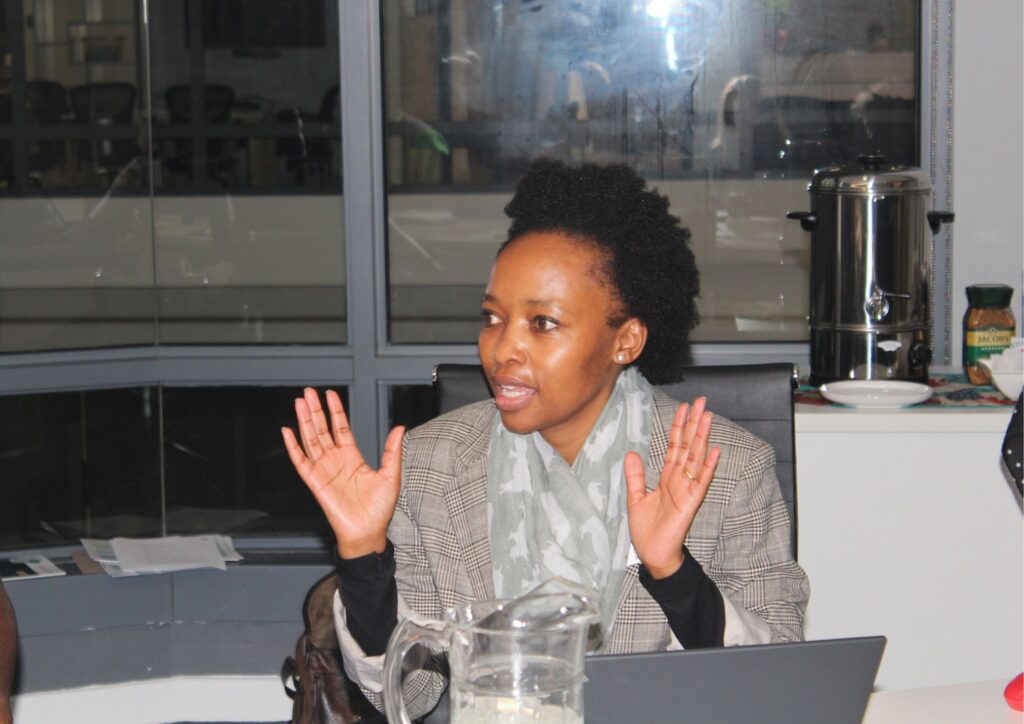
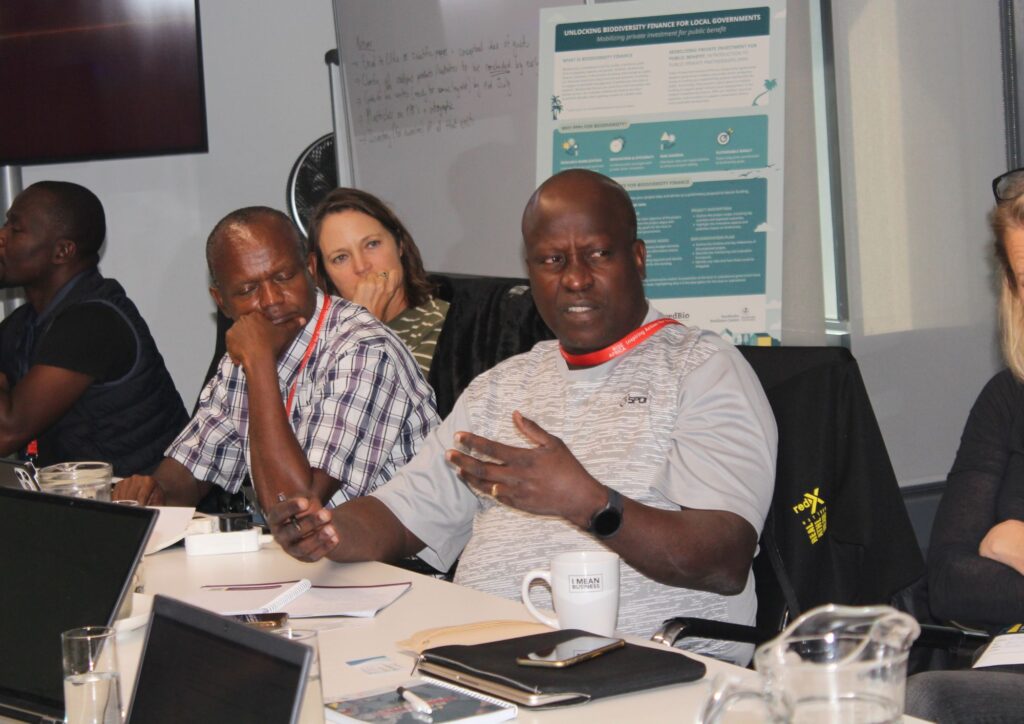

Exploring Urban Futures, Human Rights, and Nature in a Changing Climate: A Participatory Journey at RISE Africa Festival 2025
This two-part series offered a rich, participatory journey into Human Rights-Based Approaches (HRBA) to biodiversity and climate action, examined across multiple scales. Through a retrospective lens, the sessions traced the evolution of human rights recognition in global policy processes and delved into how HRBA is currently being applied in practice. Framed through an intersectionality lens, the sessions explored the complex interplay of social, economic, physical, and environmental factors that shape vulnerability and adaptive capacity in urban contexts. A highlight was the immersive experience at the District Six Museum, which provided a powerful, place based illustration of how historical and systemic forces intersect with individual identities, shaping urban development and intergenerational outcomes. Through a dynamic mix of participatory role play, panel discussions, storytelling, and an inner city walk-through, the sessions created an inclusive space for engagement among a wide range of stakeholders. These interactive formats enabled participants to identify practical opportunities and actionable steps to strengthen the application of HRBA. The sessions ultimately contributed to deepening understanding and building the capacity of diverse actors to embed human rights more effectively into biodiversity and climate action.
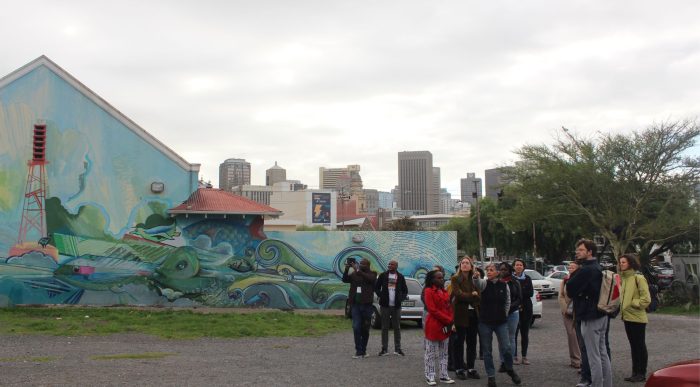
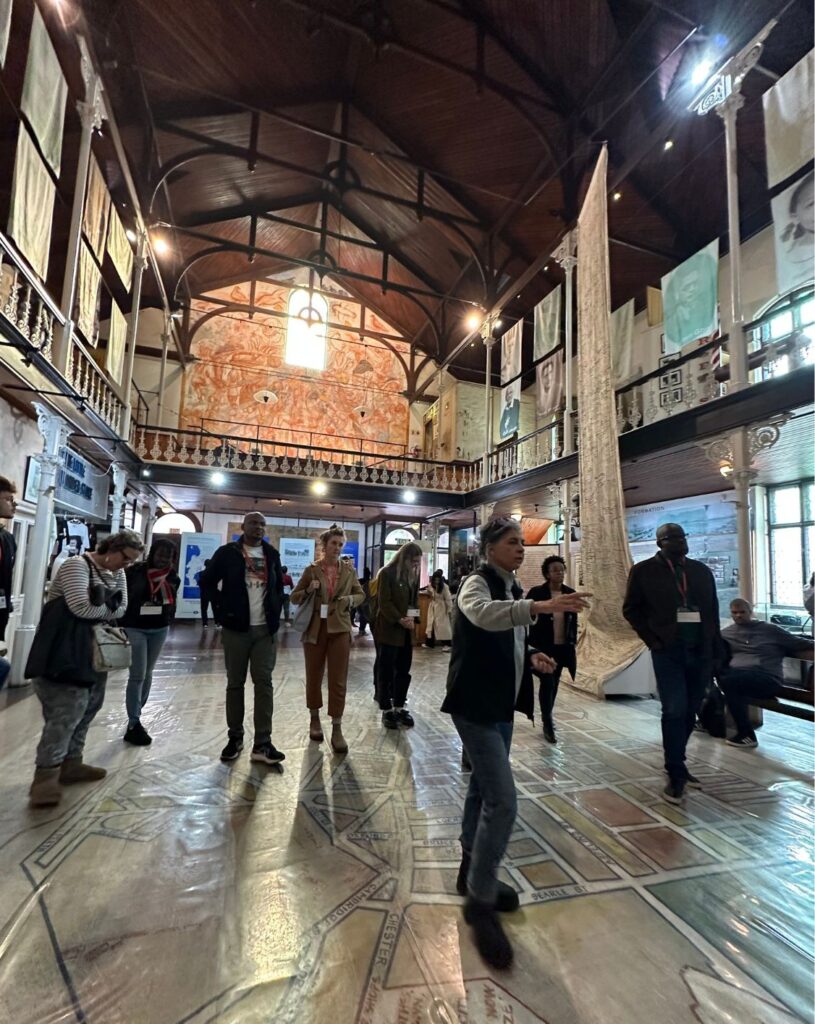


Site visits across Cape Town
The third afternoon of the RISE Africa Urban Action Festival saw delegates visiting three sites across Cape Town, namely the Green Point Urban Park, Potsdam Sustainability Campus and Cape Town Fresh Produce Market. Each of these highlighted unique possibilities, successes and ongoing challenges in realising urban sustainability goals.
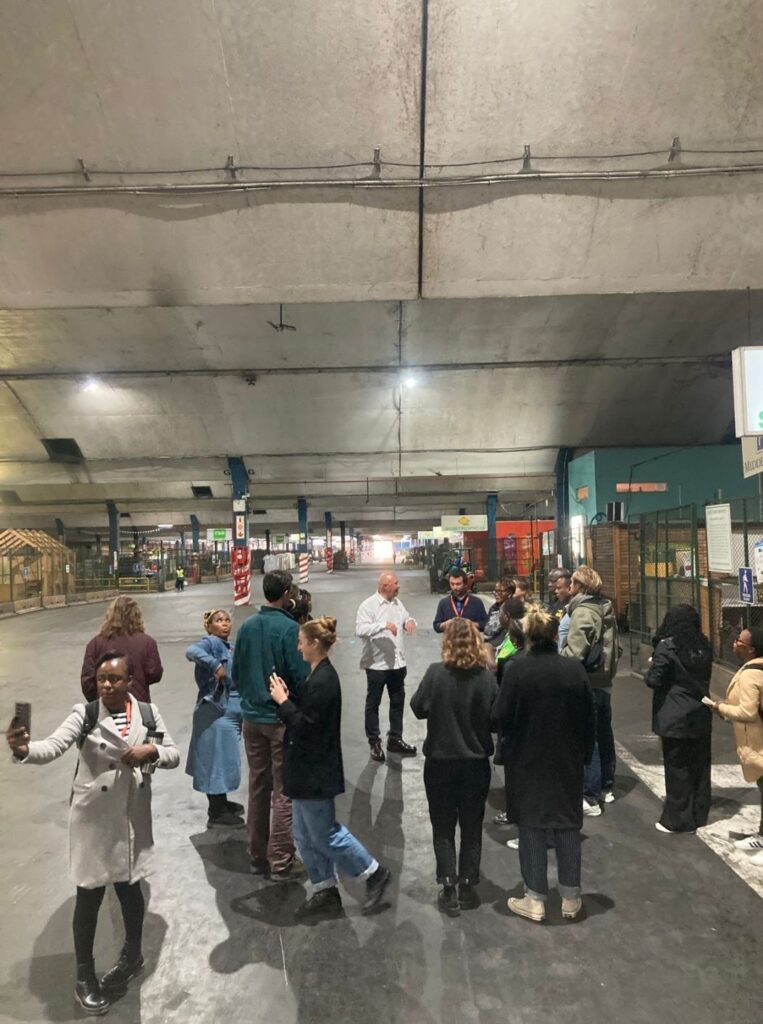
The tour of the Cape Town Fresh Produce Market, organised by ICLEI Africa’s AfriFoodlinks programme, explored the critical role of markets in urban food flows. Through engagement with market management, city officials, civil society representatives and others, the visit highlighted how the market, as a central node connecting rural producers with urban consumers, contributes to food security, urban resilience and a range of livelihoods. These livelihoods include a dynamic ecosystem of large-scale sellers as well as informal traders, spaza shops and small enterprises by virtue of affordable prices and cascading scales of procurement from bulk orders to small bags. The convenors emphasised the market’s efforts to enable sellers to scale their operations, thus serving as an engine for inclusive economic development. Lastly, visitors were introduced to how the market is being reimagined as a multi-purpose space outside of core trading hours, further exploring its inclusive potential.
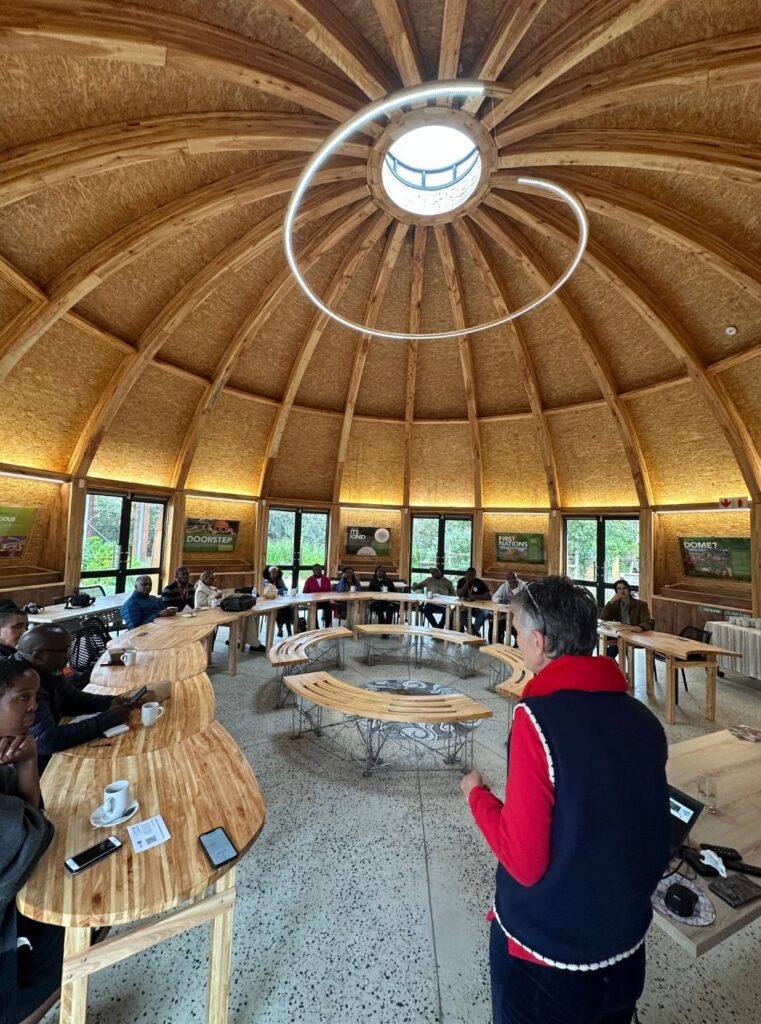
At Green Point Park, participants were given an overview of the partial redevelopment of an inner-city golf course into an urban park, founded upon principles of accessibility and celebrating indigenous biodiversity. The visit, hosted by the City of Cape Town’s Environmental Management Department, specifically focussed on the design, construction and utilisation of the so-called “Dome”, a multi-functional, freely usable structure echoing the design of Khoikhoi huts for the purposes of gathering around environmental and cultural education. Much of the discussion revolved around the importance of free access and conservation of indigenous species in urban parks, albeit acknowledging the role of a consistent security presence, and budget dedicated to it, to maintain public safety. More recent challenges in implementing additional conservation and cultural heritage initiatives linked to the site highlighted the care needed when working with historically marginalised groups with deep ties to local biodiversity, particularly the question of who holds the legitimacy to tell their stories.
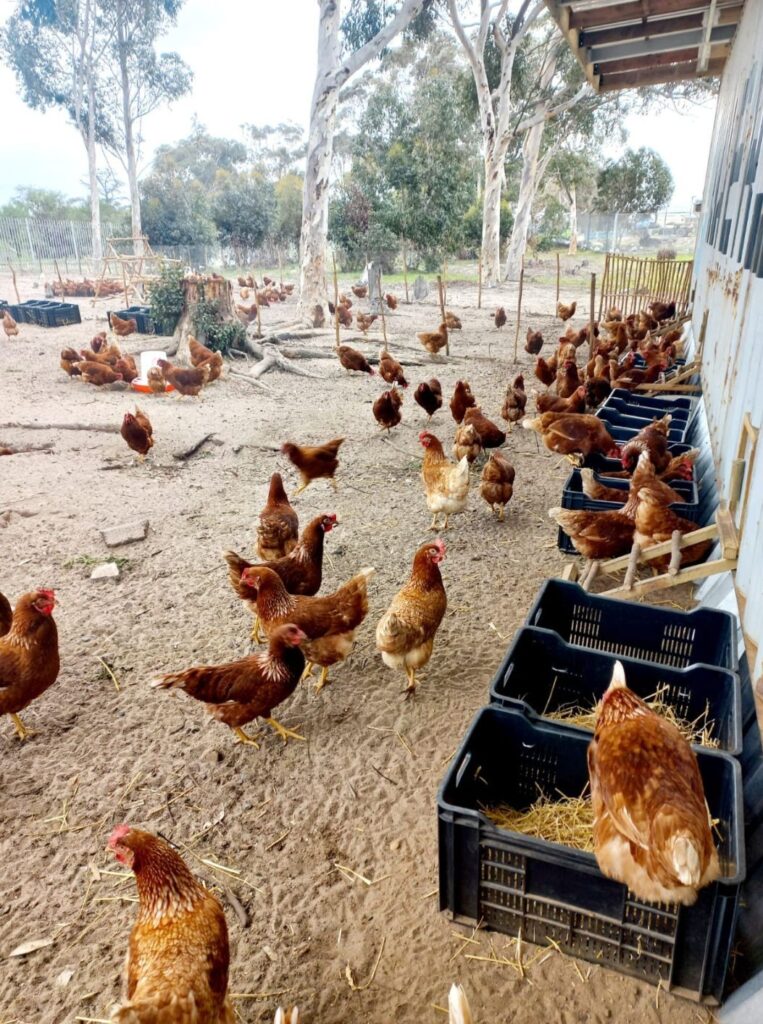
Finally, at the Potsdam Sustainability Campus, participants engaged with circular economy principles being piloted by the City of Cape Town’s Urban Design Department in partnership with other organisations. The circular practices explored during the site visit centred around agriculture and spanned (1) a solar-powered black soldier fly farm, the organic waste of which is used as chicken feed; (2) a chicken coup made from reclaimed materials; (3) rainwater harvesting and wastewater reuse; and (4) soil regeneration through agroecology. A hands-on planting session invited participants to experience the regenerative process firsthand, while presentations emphasised the participatory and knowledge-sharing approach being adopted with the involvement of local residents. While still in its infancy, the site offered a potential model for the integration of circularity into urban areas, creating spaces for experimentation, learning and collaboration.

A transformative learning journey
The UNA engagements at RISE Africa 2025 aimed to equip delegates with actionable insights to advance nature-based solutions in their cities. Through immersive workshops, peer exchanges, and expert-led sessions, participants gained both technical knowledge and strategic connections.
Key takeaways from the week included:
- Hands-on strategies and frameworks to integrate NbS into urban planning, policy, and projects in their cities
- Insights from other African cities on successful (and challenging) NbS case studies, enabling cross-city knowledge exchange
- New partnerships with experts, practitioners, and fellow city officials to support long-term collaboration on urban resilience
- Exposure to funding mechanisms, policies, and governance structures that enable NbS scaling in African urban contexts
- Methods for involving local stakeholders in NbS projects to ensure equity, social buy-in, and long-term sustainability
- A clearer roadmap and renewed motivation to champion NbS in their cities, backed by global and regional expertise
